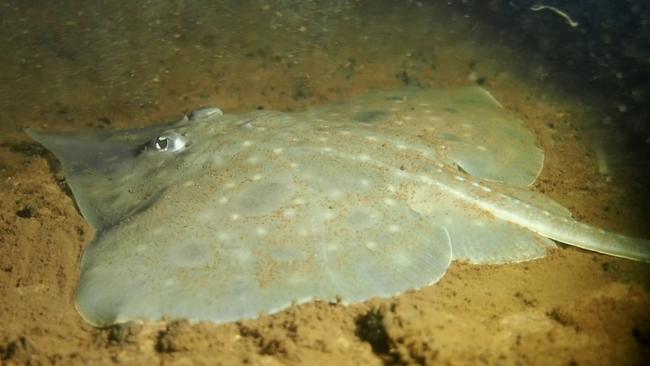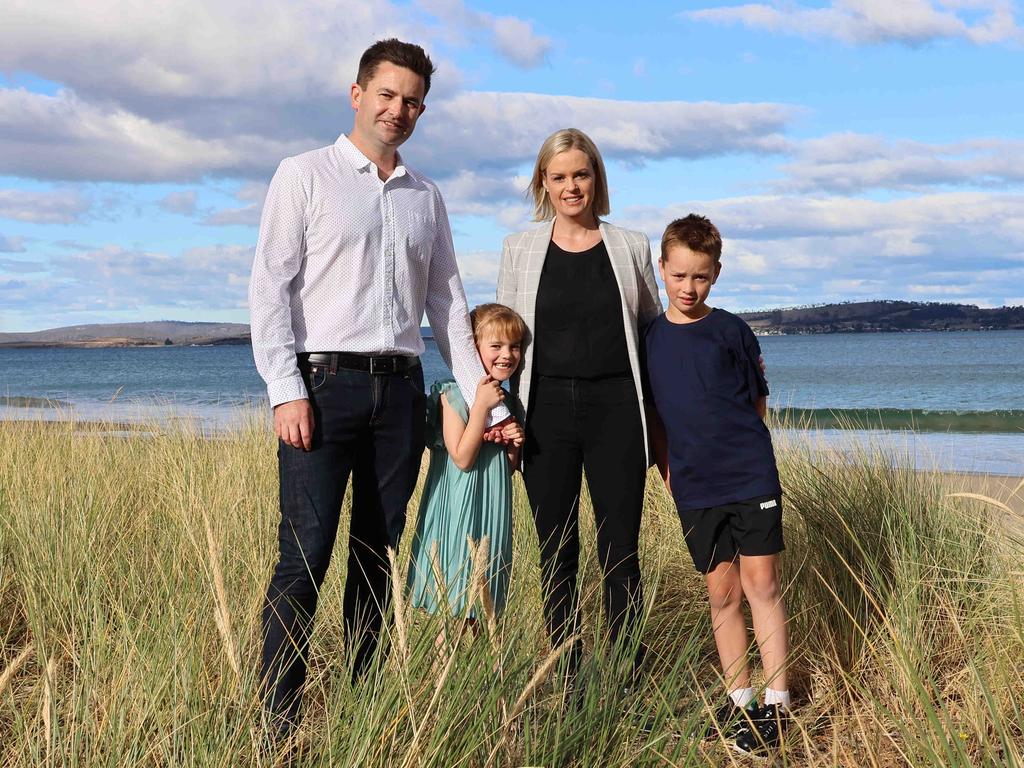Salmon farmers pile pressure on Tanya Plibersek
The salmon industry says a new study showing a stabilisation of an endangered species impacted by fish pens gives Tanya Plibersek ‘no justification’ for curtailing fish farms.

Salmon farmers claim Tanya Plibersek has no justification for curtailing aquaculture in Tasmania’s Macquarie Harbour, after a new study showed the stabilisation of an endangered species impacted by fish pens.
The federal Environment Minister is reviewing approvals for aquaculture in the harbour, due to scientific advice about “catastrophic” impacts on the Maugean skate, and has flagged “lower salmon farming industry loads”.
However, the $1.46bn industry has warned any significant reduction would devastate jobs in the town of Strahan and beyond, while one company – Petuna – has warned its survival is at stake.
On Tuesday, the Institute for Marine and Antarctic Studies released its latest monitoring data, suggesting that after an almost halving of the skate population from 2014 to 2021, it has now stabilised at this lower level.
The data, based on net surveys, showed juveniles re-emerging in similar proportions to before the population slump, providing what researchers described as “a ray of hope” for the species.
Salmon Tasmania said the results undermined the call for Ms Plibersek to shut down fish farms in Macquarie Harbour, in Tasmania’s west.
“There is no justification for Minister Plibersek to kill our industry to save the skate – she cannot and should not ignore the facts,” Salmon Tasmania chief executive Luke Martin said.
While staying out of the politics, the study authors told The Australian the skate remained at risk of extinction from adverse weather events “at any time”.
“This is telling us the (almost 50 per cent) decline wasn’t a trend – it was a single event … and the population has now stabilised at that low size,” said Dr David Moreno. “It hasn’t gotten worse since 2021.
“It’s positive that the (age) structure of the population is looking a little bit healthier, but by no means are we out of the woods.”
Professor Jayson Semmens said while the proportion of juveniles to adults was now similar to that seen 10 years ago, before the population crash, the overall population was still at the same “very low level”.
Ms Plibersek – who must make a decision on the future of salmon farms as well as whether to “up-list” the skate to “critically endangered” – said she would “make a decision in accordance with the law and the science”.
Earlier studies suggest the skate population, found only in Macquarie Harbour, crashed 47 per cent from 2014 to 2021, to less than 1500. Modelling suggests it could be far lower.
Scientists and conservationists blame waste and oxygen depletion linked to fish farms, along with hydro flows, gillnetting and historic mine pollution.
The Australian Marine Conservation Society said the increase in the proportion of young skates did not change the need to remove fish pens from the harbour.
“We need to continue to do everything we can to ensure these new recruits reach breeding age to enable the species to recover,” said society campaigner Alexia Wellebelove.
“Salmon farming has dramatically depleted the oxygen levels in Macquarie Harbour, and removing salmon farming is the fastest way to improve oxygen levels for the skate to survive and recover.”






To join the conversation, please log in. Don't have an account? Register
Join the conversation, you are commenting as Logout